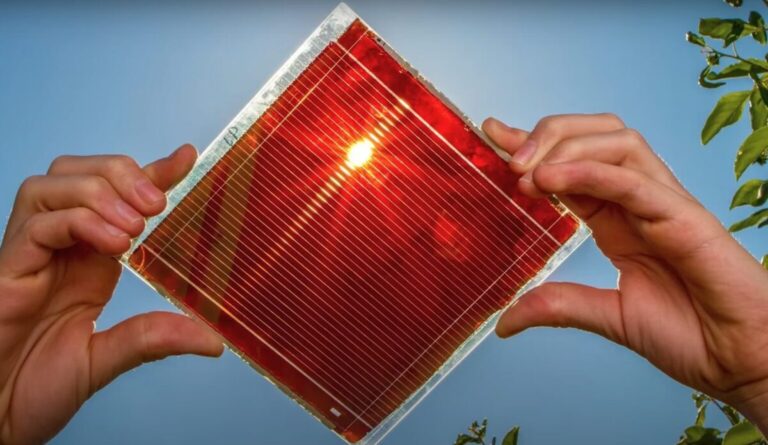Swift Solar, a specialist in perovskite-tandem solar photovoltaics, plans to build a factory in the US to produce thin-film solar energy in the next two to three years.
Swift Solar announced the closing of its $27 million Series A funding round, which follows a $7 million award from the Department of Energy under the Advancing US Thin-Film Solar Photovoltaics funding program.
Founded in 2017, the company is a spinout of MIT, Stanford University and the National Renewable Energy Laboratory (NREL), and specializes in perovskite-tandem solar photovoltaics. The new technology combines metal halide perovskites with silicon or other perovskites to create tandem cells that have higher efficiency than traditional solar cells.
The $27 million financing round was co-led by Eni Next and Fontinalis Partners. New and existing investors are also participating in the round, including Stanford University, Good Growth Capital, BlueScopeX, HL Ventures, Toba Capital, Sid Sijbrandij, James Fickel, Adam Winkel, Fred Ehrsam, Jonathan Lin and Climate Capital.
The $7 million DOE funding is part of a $71 million investment, including $16 million from the Bipartisan Infrastructure Law, which supports research, development and demonstration projects to help grow the domestic solar supply chain. Swift Solar was one of four winners working on tandem PV devices that combine established PV technologies such as silicon and copper indium gallium diselenide (CIGS) with perovskites.
In total, Swift Solar has raised $44 million to scale up its technology as it prepares for its first production facility.
“Solar is the future of energy – not just clean energy,” said Joel Jean, co-founder and CEO of Swift Solar. “Our advanced perovskite solar cells can outperform anything currently available on the market.”
The company’s novel vapor deposition technology can help the country accelerate production of its tandem solution. The new method is a non-batch process that solves two problems associated with the use of established vapor processing in the production of perovskite material: the slow rate of deposition and the non-continuous nature of batch processing.
“Our deposition approach enables the continuous deposition of a fully absorbing perovskite material in less than five minutes,” said corresponding author Tobias Abzieher of Swift Solar, a US-based perovskite PV startup. pv magazine. “Solar cells fabricated with these materials also significantly outperform previously achieved efficiencies from vapor-processed inorganic perovskite solar cells.”
In its announcement, Swift Solar noted that manufacturing perovskite solar cells uses less material and less energy, which should reduce production costs and carbon pollution, potentially reducing the cost of solar energy by as much as 30%. “The perovskite supply chain could be based entirely in the United States and neighboring countries, creating a major opportunity to expand domestic production,” Swift said.
Swift Solar’s first products will be designed for integration into high-end solar products, such as on car roofs or space-based satellites. The company reports that it has plans for a rooftop solar product to be released in the future.
Swift Solar was recently named one of TIME’s Top GreenTech Companies in America. In April, the Solar Energy Manufacturers for America (SEMA) Coalition announced that Swift Solar was a new member.
This content is copyrighted and may not be reused. If you would like to collaborate with us and reuse some of our content, please contact: editors@pv-magazine.com.


